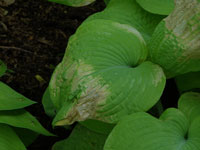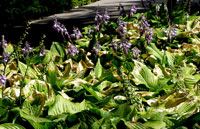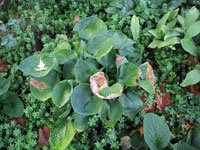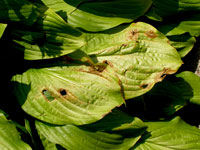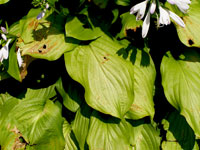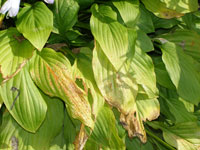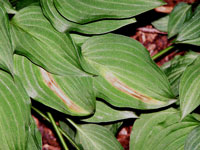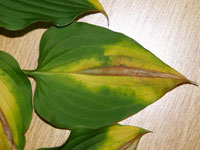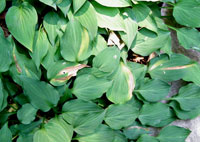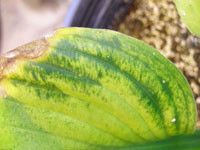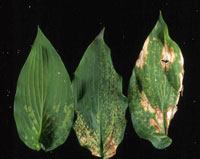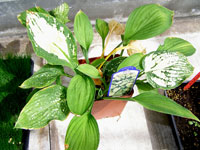Extension > Garden > Diagnose a problem > What's wrong with my plant? > Annuals and Perennials > Hosta > Spots on leaves
Hosta > Spots on leaves
1 of 5
Sunscald
- Patches of leaves exposed to too much sun are bleached to a yellow or white color
- Severely burned leaves may have light tan dead areas that are papery and thin
- Whole sections of leaves may discolor and die
- Occurs in hostas that receive too much sun
2 of 5
Leaf Spot
Colletotrichum sp., Alternaria sp., Cercospora sp., and
Phyllosticta sp.
- Randomly scattered tan to brown spots on leaves
- Some spots have a dark border and light center
- In severe cases spots grow together to kill large sections of the leaf
- Dead tissue in the center of the spot may fall out
3 of 5
Foliar Nematodes
Aphelenchoides sp.
- Yellow to tan stripe on leaves parallel to leaf veins
- Starts on lower leaves first
- Leaves may rip or fall apart where brown and dead tissue occurs
- Most noticeable in late summer and fall
- More information on Foliar Nematodes
4 of 5
Virus
Hosta Virus X, Tobacco Rattle virus, and others
- Unusual dark and light green streaks, blotches and spots on leaves
- Dark and light green leaf color may seem to bleed together like ink on wet paper
- Leaves may be malformed and twisted
- Dead brown tissue may occur in streaks or spots on leaves
- Some cultivars may not show symptoms
- Lab test required to distinguish between viruses and to verify infection
- More information on Virus
5 of 5
- - NO PHOTO AVAILABLE -
Petiole Rot
Sclerotium rolfsii
- Leaves, turn yellow, then brown, wilt and fall down
- Older, outer most leaves are infected first, followed by younger inner leaves
- Infected leaves come off easily and are brown and mushy at the base
- Tiny tan to reddish brown hard spheres and white cottony growth can be seen at the base of infected leaves or in the soil around infected plants
- Often seen after warm wet weather
- More information on Petiole Rot



